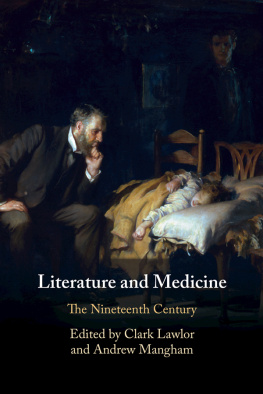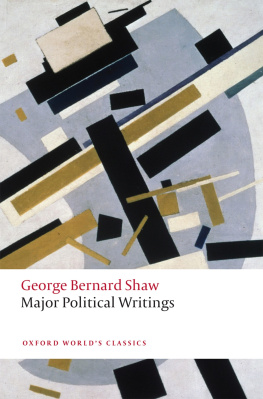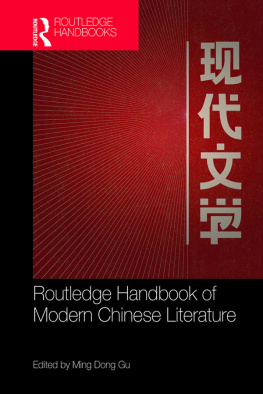The Experienced Soul
Modern Hebrew Classics
David Patterson, Series Editor
This series presents formative works of lasting significance that have appeared in Hebrew, as well as more recent critical work. The series is designed to acquaint the English reader with the quality of modern Hebrew writing in its period of revival and renaissance and to reflect the cultural, religious, and social conditions and conflicts in Jewish life in the nineteenth and early twentieth centuries.
The Experienced Soul: Studies in Amichai, edited by Glenda Abramson
Joseph Perl's Revealer of Secrets: The First Hebrew Novel, translated with an introduction and notes by Dov Taylor
Tradition and Trauma: Studies in the Fiction of S.J. Agnon, edited by David Patterson and Glenda Abramson
The World of Israel Weissbrem, translated by Alan D. Crown
Out of the Depths, Joseph Chaim Brenner, translated by David Patterson
The Experienced Soul
Studies in Amichai
Edited By
Glenda Abramson
First published 1997 by Westview Press
Published 2019 by Routledge
52 Vanderbilt Avenue, New York, NY 10017
2 Park Square, Milton Park, Abingdon, Oxon OX14 4RN
Routledge is an imprint of the Taylor & Francis Group, an informa business
Copyright 1997 Taylor & Francis
All rights reserved. No part of this book may be reprinted or reproduced or utilised in any form or by any electronic, mechanical, or other means, now known or hereafter invented, including photocopying and recording, or in any information storage or retrieval system, without permission in writing from the publishers.
Notice:
Product or corporate names may be trademarks or registered trademarks, and are used only for identification and explanation without intent to infringe.
Library of Congress Cataloging-in-Publication Data
The experienced soul: studies in Amichai / edited by Glenda Abramson.
p. cm.(Modern Hebrew classics)
Includes bibliographical references and index.
ISBN 0-8133-2730-X (hc)
1. Amichai,YehudaCriticism and interpretation. I. Abramson,
Glenda. II. Series.
PJ5054.A65Z64 1997
892.4'16dc21 96-6694
CIP
ISBN 13: 978-0-367-29201-0 (hbk)
My soul is experienced and built
against erosion like mountain terraces. I'm a man who holds on
I'm a middle man, a buckle man.
(Great TranquillityQuestions and Answers)
Contents
, Glenda Abramson
, Abd El-Khalik Gobah
Part One
Poetry
, Arnold J. Band
, Ziva Shamir
, Boaz Arpaly
, Masha Itzhaki
, Glenda Abramson
, Ziva Feldman
, Nili Scharf Gold
, Gershon Shaked
Part Two
Drama
, Gabriella Moscati Steindler
Part Three
Fiction
, Risa Domb
, Leon I. Yudkin
, Menucha Gilboa
This volume is offered as a tribute to Yehuda Amichai on the occasion of his seventieth birthday, which was celebrated in Oxford in 1994 by an international conference devoted to his works. My most grateful thanks to the Oxford Centre for Hebrew and Jewish Studies, without whose support this book would not have been produced. Thanks also to Emma Muir, Alun Ward, and Melanie Sampson for their hard and unstinting work and to Stephen Ashworth for his patience and meticulous attention to detail.
Glenda Abramson
Glenda Abramson
Yehuda Amichai was born in 1924 in Wrzburg, Bavaria, to a family of Orthodox Jews. He received a traditional education and first encountered Hebrew through prayers at the age of four or five. In 1936 his family emigrated to Palestine, settling first in Petach Tikva and then in Jerusalem where he continued his religious education.
During the Second World War he joined the Jewish Brigade and served in Egypt. Later, in the Palmah, he smuggled arms and "illegal" immigrants into Palestine. At this time he began to read modern English poetry, particularly the works of W. H. Auden which, together with the poetry of the medieval Jewish warrior-poet Shmuel Hanagid, were to remain a major influence on his own writing. His encounter with Auden and, to a lesser extent, with the works of T. S. Eliot led to his exploration of the Hebrew language as a vehicle for expressing the postwar mood. When asked in an interview whether he viewed himself as a rebel against the tradition of Shlonsky and Alterman, Amichai denied any conscious attempt to initiate a new wave of poetry. However, he is frequently cited by critics as the forerunner of a school of poetry that celebrates the developing language by utilizing its colloquial richness. He is also credited with belonging to the "generation of the land", dor baaretz, the generation of writers born during the first quarter of the twentieth century, fondly termed the Palmah generation. This popular sobriquet is largely a generalization, for the generation to which it refers does not constitute a homogeneous artistic "school"; its nominal representatives fall into distinct categories determined by biographical circumstances, by cultural background, by their choice of themes, or by the poetics that distinguishes one literary convention from another. Amichai's work is a case in point: it constituted a departure from any previous or contemporary literary norm. In his extensive paper for this volume, Gershon Shaked discusses the relationship between Amichai's new "genotype" and that of his literary forebears.
During his adolescence Amichai abandoned formal religious practice, without relinquishing its spirit or his love of the poetry of the Jewish liturgical texts, which he exploits in his verse. His rebellion against the traditional Orthodoxy practised by his family to a very large extent conditions his writing. It is his language, "the stones of the past", that determines his position in relation to the religious vernacular associated with and represented by his father. The clear statement of this position is made within his language itself.
Amichai's first book of poetry, Akhshav uvayamim haaherim (Now and in other days), appeared in 1955 and was awarded the Shlonsky Prize in 1957. It was followed by Bemerhak shtei tikvot (Two hopes apart) in 1958, which set the tone for poetry that distilled the disillusionment of an entire generation. At the same time this poetry introduced the themes that were to characterize the remainder of his work: love, war, the passage of time, his spokesman's relationship with his father, and his confrontation of his own mortality. Amichai's linguistic innovations were marked by his incorporation of the most common elements of the vernacular, technological and military terms, snatches of popular lyrics, proverbs, idioms, and slogans, in addition to ironic wordplay, rich imagery, and the use in Hebrew of the conceit, a term which has been fashionably if not always accurately applied to his figuration. In one of the essays that follow, Ziva Shamir elucidates this figure, putting the record straight about Amichai's use of it.
In 1961 Amichai published a collection of short stories, Baruah hanoraah hazot (In this terrible wind), in which he recounted, among other topics, his wartime experiences in Egypt and Palestine and demonstrated his ability to write prose, albeit strongly laced with the imagery of his poetry. In 1959, at the age of 35, he returned to Wrzburg for the first time, visiting the sites of his childhood which meanwhile had been destroyed by the war. The experience of return resulted in a novel, Lo meakhshav, lo mikan, 1963 ( Not of This Time, Not of This Place ), and the radio play Paamonim verakavot, 1963 (Bells and trains), which won the KolYisrael first prize for a radio play in that year. Amichai's memories of Wrzburg (appearing in these works in the fictional guises of Weinburg and Zingburg respectively) create unexpected nostalgia and a dislocation of the idea of place, symbolized, as Risa Domb demonstrates, by the splitting of the novel's protagonist into two distinct personalities. Through this device the novel also contemplates the split personality of the modern Israeli: half in thrall to his birthplace, the other half grasping the future of redemption in Israel. At the same time it examines the post-Holocaust need to revisit, and then if possible reclaim a lost childhood.







